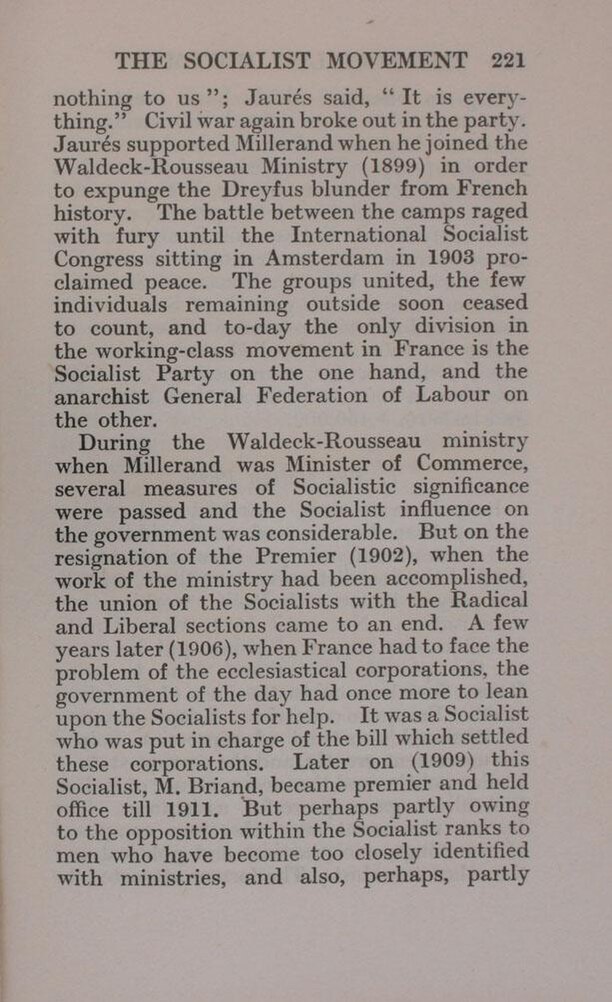nothing to us"; Jaurés said, "It is everything." Civil war again broke out in the party. Jaurés supported Millerand when he joined the Waldeck-Rousseau Ministry (1899) in order to expunge the Dreyfus blunder from French history. The battle between the camps raged with fury until the International Socialist Congress sitting in Amsterdam in 1903 proclaimed peace. The groups united, the few individuals remaining outside soon ceased to count, and to-day the only division in the working-class movement in France is the Socialist Party on the one hand, and the anarchist General Federation of Labour on the other.
During the Waldeck-Rousseau ministry when Millerand was Minister of Commerce, several measures of Socialistic significance were passed and the Socialist influence on the government was considerable. But on the resignation of the Premier (1902), when the work of the ministry had been accomplished, the union of the Socialists with the Radical and Liberal sections came to an end. A few years later (1906), when France had to face the problem of the ecclesiastical corporations, the government of the day had once more to lean upon the Socialists for help. It was a Socialist who was put in charge of the bill which settled these corporations. Later on (1909) this Socialist, M. Briand, became premier and held office till 1911. But perhaps partly owing to the opposition within the Socialist ranks to men who have become too closely identified with ministries, and also, perhaps, partly
